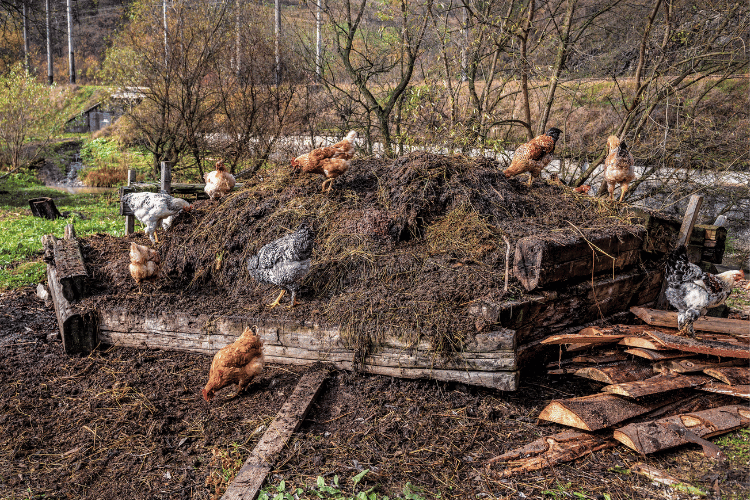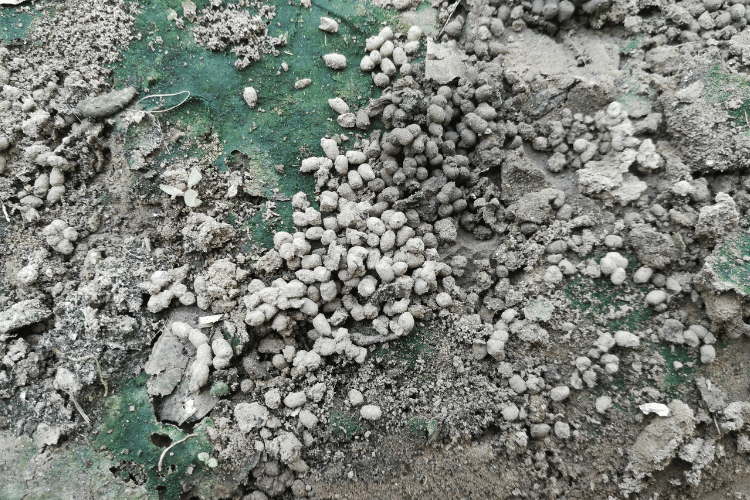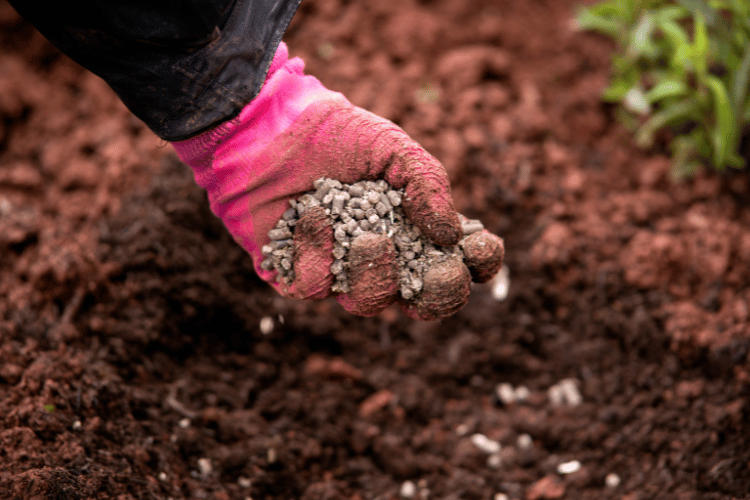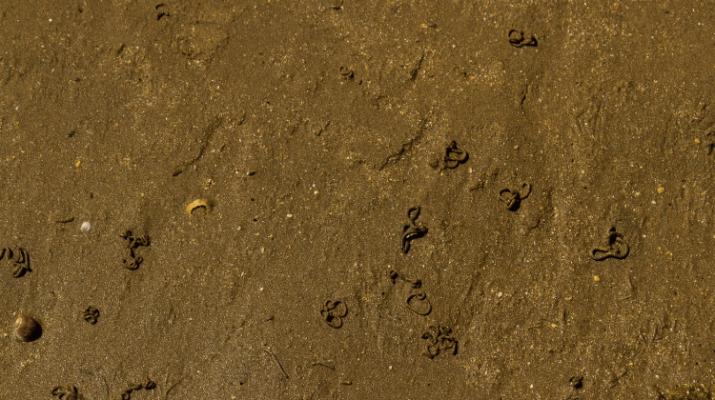With numerous varieties of fertilizers on the market, the choices seem endless, each promising a green haven for your plants. Whether you want a thriving garden, or you’re looking to make the most out of your waste, you might find yourself deciding between chicken manure vs. worm castings.
In this guide, we’ll tell you everything you need to know about chicken manure vs. worm castings. So, keep reading to discover the unique qualities, environmental impact, and how to use these organic materials. Let’s dive in!
What Is Chicken Manure?

Chicken manure, a potent force in the world of composting, is proof of the incredible contributions of our feathered companions. Every six months, these diligent birds provide approximately one cubic foot of nutrient-rich manure.
This organic fertilizer is a key player in elevating soil quality. For starters, it boasts essential minerals, enhancing both water retention and the flourishing community of beneficial microbes within the soil.
That’s not all. The organic matter from chicken manure enhances soil drainage and aeration. This dual action creates an optimal environment for plant growth, supporting the development of a healthy and vibrant garden.
While chicken manure has a lot of potential, it, unfortunately, carries risks. Fresh chicken manure might contain harmful bacteria like E. Coli and salmonella. If not cured properly, these can pose a serious issue.
Composting does more than just eliminate harmful elements. It also addresses the high ammonia content in chicken waste, ensuring your plants remain unharmed.
What Are Worm Castings?
The humble worm is the star in the world of composting. This tiny creature has a gigantic role. After all, they’re the main players behind vermicomposting.
Worm bins, often hailed as gold mines for liquid treasures and compost, are where the magic happens. While liquid gold steals the spotlight, worm castings also have a lot of potential.
Unlike compost, which is essentially the broken-down organic matter, worm castings are the excrement of the tiny worms. However, these castings are more treasure than waste.
Picture them as nature’s nutrient-packed capsules. Worm castings provide vital nutrients to the soil, a nutritional boost that plants truly appreciate.
Additionally, the castings can help in aerating the soil for improved oxygen circulation. What sets worm castings apart is their ability to contribute essential nitrogen without the risk of burning your plants. This way, the castings provide a delicate balance.
The best part is that worm castings can be seamlessly integrated into your gardening routine. Instead of replacing your powerful fertilizer with worm castings, think of them as supplementary nutrients for your plants.

Differences Between Chicken Manure vs. Worm Castings
Here are the primary differences between chicken manure and worm castings so you can make an informed decision on which to use:
Quality
When deliberating between chicken manure and worm castings for your composting farm, their impact on plant health, as well as your own well-being, takes center stage.
Both contribute vital nutrients to the soil, but chicken manure’s higher mineral content makes it a potent natural fertilizer.
That said, chicken manure demands careful processing to prevent the risks of harmful microbes and elevated nitrogen levels. Individuals susceptible to foodborne diseases should stay away from vegetables grown with chicken manure.
In contrast, worm castings emerge as a safe and worry-free alternative, fostering healthy plant growth without the associated risks.
Ease-of-Use
When it comes to the ease of integrating fertilizers into your composting routine, you can easily use one of the two composts. However, if you’re composting from scratch, the outcome differs.
Composting fresh manure requires a bit more effort, due to the complexities of processing. On the flip side, worm castings are a user-friendly option. They’re ready to use without additional processing, simplifying the composting journey.
Moreover, keeping worms is notably easier than managing a flock of chickens. Worms happily work away in their bins, requiring less attention and effort.
So, while chickens have their merits, such as providing eggs, the simplicity of incorporating worm castings into your composting routine makes them a compelling choice.
Price
Starting a compost farm requires some initial investment, but in the long run, it’s more cost-effective than buying chicken compost.
Making your compost not only saves money but also reduces waste. Think of it as a smart, budget-friendly choice that benefits both your plants and the environment.
So, while you might spend a bit at the beginning, the ongoing savings and positive impact on your garden and the planet make it a worthwhile investment.
Carbon Footprint
Choosing to keep worms over chickens is definitely the greener choice. Vermicomposting, facilitated by these industrious creatures, transforms organic waste into valuable liquid gold and nutrient-rich castings.
This process is the epitome of environmental friendliness. By opting for vermicomposting, you’re not just reducing your carbon footprint; you’re actively turning waste into resources that benefit both your garden and the planet.
How to Make Chicken Manure Compost
There are various chicken manure options, but the greenest way involves a bit of DIY composting magic. Sure, you could buy chicken manure compost, but where’s the fun in that?
If you’ve got a flock, you can turn their waste into a green solution by collecting the right mix of chicken manure and bedding. Then, wait for three days while the mixture heats up.
This process must be repeated multiple times, to ensure a dry, microbe-free compost. Then, the compost pile must cure for around 45 days, allowing nature to work its magic.
Naturally, this is a tedious process. You need the right tools, dedication, and a touch of patience. If not done right, it could spell trouble for your garden.
Yet, the satisfaction of turning chicken waste into black gold might be a gardening journey worth taking.
How to Make Worm Castings
When it comes to worm castings, the process is as effortless as it gets. Once you’ve got your hands on a worm tower, consider the hard work done. The worms will take it from here!
Assembling the worm bin is your initial task, creating a cozy habitat with the right bedding for your wormy pals. Afterward, all you need to do is provide your hardworking worms with food scraps. This way, they can produce nutrient-rich worm tea, and craft those coveted castings.
Unlike the lengthy process of chicken manure composting, you’ll be collecting worm castings every two weeks, and giving your plants a treat right away.
While it may be less in quantity compared to chicken manure compost, the beauty is there’s no further treatment required from you. It’s also easy on the pockets compared to store-bought chicken manure compost.
As if that wasn’t enough. There’s no way you can mess up collecting worm castings. It’s safe for your plants, the environment, and most importantly, your health.

Which Should You Use: Chicken Manure vs. Worm Castings
As you choose between chicken manure and worm castings as your new organic fertilizer, the decision ultimately depends on your gardening goals and preferences.
Chicken manure, an abundant powerful fertilizer, offers a convenient solution for your plants, especially if you buy it. On the flip side, worm castings require a bit more effort – setting up a worm bin, feeding the worms, and patiently collecting those precious castings.
While chicken manure may be more potent, it comes with risks. Yet, worm castings pose no threat to your plants or your health. The best part is that the all-powerful worm castings that come along with worm compost, liquid gold!
If you’re leaning towards an environmentally friendly fertilizing journey, worm castings have the upper hand. Vermicomposting, with its simplicity, safety, and eco-friendliness, seems to be the obvious choice for those seeking a green thumb without compromising on the health of the garden or the planet.
So, as you step into the world of composting, consider the virtues of worm castings, where nature’s efficiency meets gardening delight.
Wrapping Up
Chicken manure, with its fertilizing potency, may seem like a tempting option, but the risks and complexities become apparent. With bacteria like E. coli and salmonella, you don’t want to risk composting chicken manure yourself, especially without the right tools.
Accordingly, worm castings, effortlessly produced in a worm bin, emerge as the clear winner. Not only are they easy to obtain, but they’re also free from the risks associated with chicken manure. To make your green thumb even greener, composting your chicken waste into a potent fertilizer is the way to go.
As you tend to your garden, consider the simplicity, safety, and efficacy that worm castings bring. The verdict is clear: in the face-off of chicken manure vs. worm castings, the latter stands tall as the choice that nurtures not just your plants but also the sustainable essence of your gardening journey. Happy gardening!

